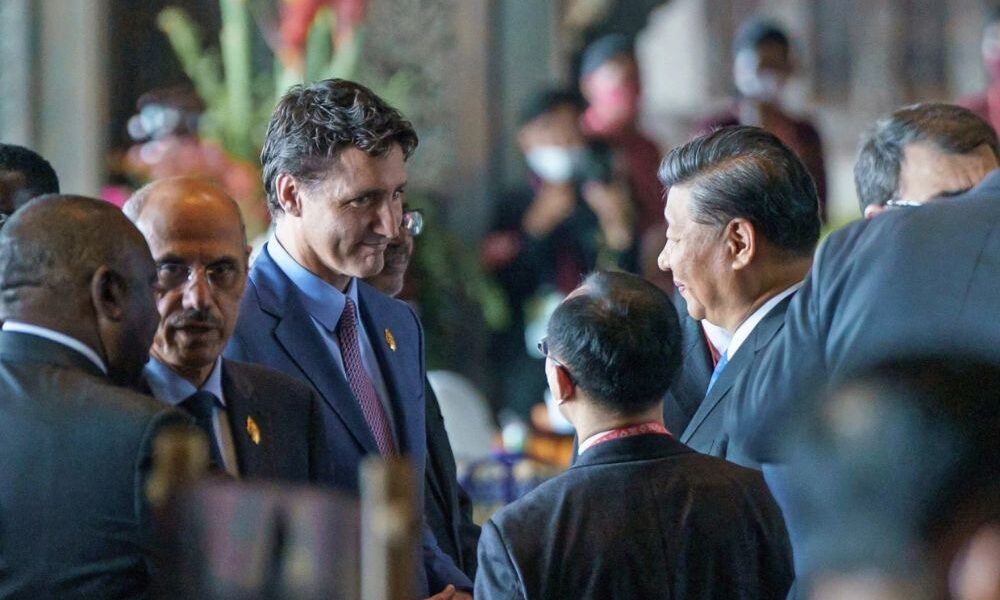News coverage about the Chinese government’s alleged interference in Canada’s 2021 federal elections has continued for more than a month since The Globe and Mail reported that CSIS received intelligence about the Beijing government’s possible meddling in the 2021 federal election.
The media attention has created a public uproar because of how it could threaten faith in our democracy and in Prime Minister Justin Trudeau’s leadership—to certain lawmakers’ benefit. Even if they seem to only concern the Chinese and Canadian governments, the Asian Canadian community is already feeling the repercussions of recent allegations.
For legislators working on China-Canada relations, these repercussions could not be more detrimental. After reports that he helped the Chinese consulate interfere in the 2019 election and advised against the release of Michael Spavor and Michael Kovrig, Member of Parliament Han Dong, who represents Don Valley North in Ontario, left the Liberal caucus to become an independent. Dong stated that he received hateful, aggressive comments, and even death threats in light of recent allegations.
As Dong is a powerful legislator, his missteps have consequences for Chinese residents in Canada. As new developments have rolled out, increasing political distrust towards China and the Chinese Communist Party (CCP) manifests in the mistreatment of Chinese Canadians. These developments are only adding to the reasons why some are sceptical of high-profile politicians, and wondering whether Chinese and Asian Canadians more broadly are more loyal to Canada or to their home country—a racist and dangerous sentiment.
Despite the understandable concern about these allegations, we must note that no politician has stated that the Chinese government manipulated the election in a way that changed any outcome. The Angus Reid Institute conducted a survey amongst nearly one-fourth of the Canadian population and revealed that 42 per cent of past Conservative voters believe the election was “stolen.” Does that ring a bell? It should. With existing distrust in our political institutions, any proceeding into inquiries on interference in our elections therefore must be thorough, rigorous, and attuned to institutional trust.
Since the COVID-19 pandemic started in 2020, North America has seen a resurfacing of overt racism and xenophobia toward the Asian community through rising hate crimes. At the same time, the relationship between the Canadian government and the Chinese government has become more strained. Anti-Asian racism is embedded in Canadian history. As early as 1885, the Chinese head tax dictated that every Chinese person wanting to enter Canada needed to pay up to $500, explicitly deterring immigration inflow amongst that population. And from 1923 to 1947, the Chinese Immigration Act openly denied entry to all Chinese people.
More recently, anti-immigration agendas have been used as a political tactic by many of Canada’s politicians, including Premier François Legault during the 2022 Quebec provincial elections. Economic crises and other historically difficult periods are often a justification for politicians and the general population to use immigrant groups as scapegoats to explain large societal issues and to cull favour from voters. Even though the CCP’s policy decisions are not representative of the beliefs of Chinese Canadians, the negative impression of the CCP overflows and washes over the community. Canada’s Chief Public Health Officer, Theresa Tam, was even berated by the Conservative Derek Sloan, who questioned her loyalty towards Canada. This kind of suspicion targeted at Chinese and Asian immigrants could reinforce Asian Canadians’ sentiment of not belonging to the country in which many of them are born.
Of course, the allegations made about interference in Canadian elections must be investigated so as to ensure the validity of our democratic process. In the meantime, the Canadian government and citizens must work to mitigate the growing discrimination and hatred against Asian Canadians. Institutions and individuals are equally responsible to ensure that our country stays a civil, accepting place that treats people with respect and that supports a racially-inclusive democracy. As immigrants represent almost a quarter of the Canadian population, ensuring the well-being of minority groups is ensuring the well-being of a significant part of our city, province, and country, and the democracy that unites them all.
Erratum: “A previous version of this article incorrectly stated that Derek Sloan was leader of the Conservative party. In fact, Sloan was a Member of Parliament who unsuccessfully ran for party leadership. The Tribune regrets this error.”








